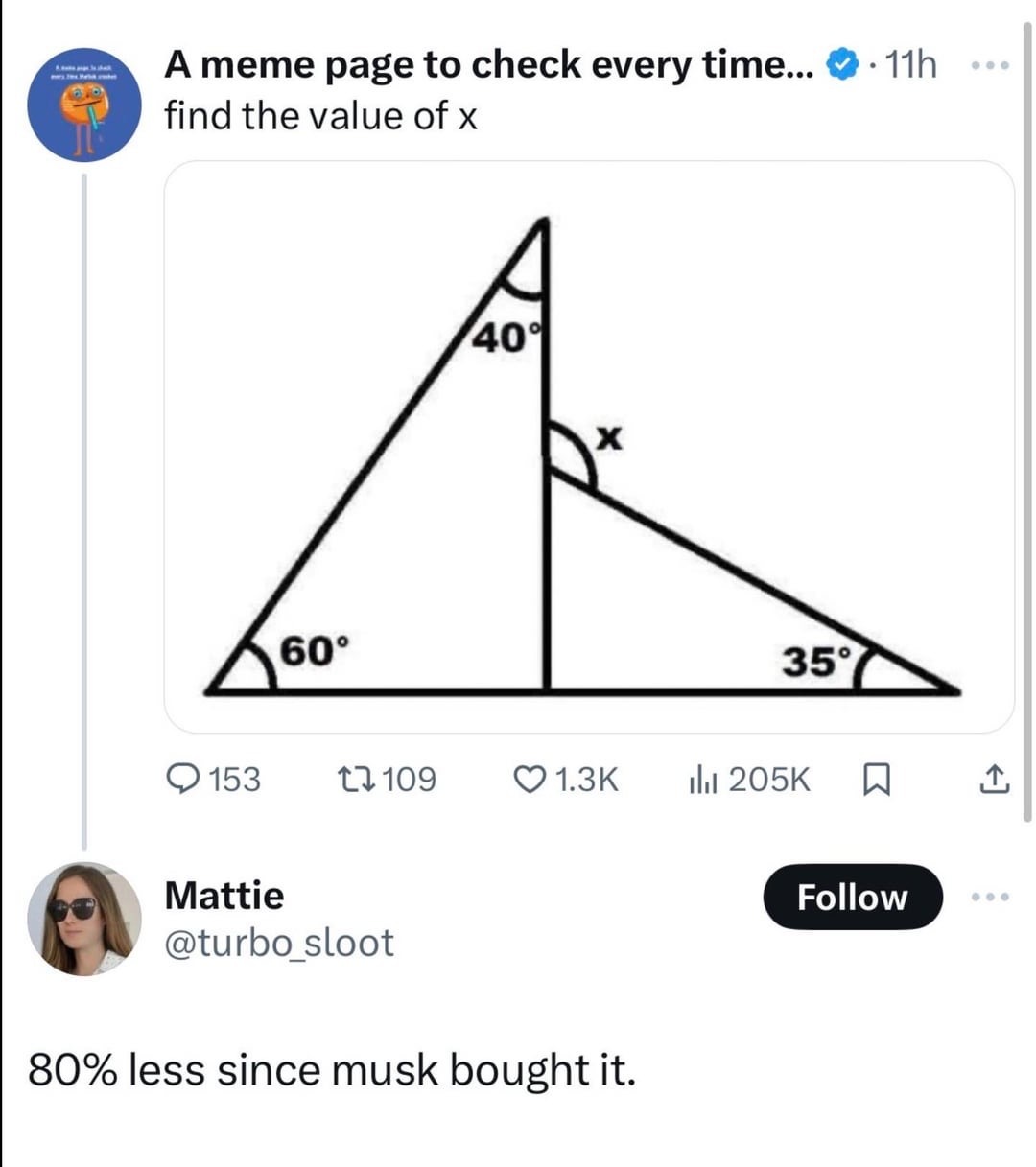this post was submitted on 08 Oct 2024
1123 points (98.3% liked)
People Twitter
5829 readers
1424 users here now
People tweeting stuff. We allow tweets from anyone.
RULES:
- Mark NSFW content.
- No doxxing people.
- Must be a pic of the tweet or similar. No direct links to the tweet.
- No bullying or international politcs
- Be excellent to each other.
- Provide an archived link to the tweet (or similar) being shown if it's a major figure or a politician.
founded 2 years ago
MODERATORS
you are viewing a single comment's thread
view the rest of the comments
view the rest of the comments

I mean, the assumption shouldn't be anything about scale. It should be that we're looking at straight lines. And if we can't assume that, then what are we even doing.
But, assuming straight lines, given straight lines you find the other side of an intersecting line because of complements.
That's exactly what the other user is saying. We can't assume straight lines because the given angles don't make any sense and thus this graph is literally impossible to make. We're arguing over literal click bait is what we're doing.
Why do the labeled angles prevent us from assuming straight lines?
Because the angles aren't represented accurately. It could be that the two angles that look like they're 90° add up to 180°, but they could also not
That's technically possible, but that's also an irrational take. The rational take is to assume the problem is solvable given the available information, which means assuming that the lines are straight.
Yes, two angles appear to be 90⁰, but they're obviously not with the given information. Math conventions nearly always label right angles, so not having the right angle there implies that the angle should not be assumed to be 90⁰. Math conventions in trigonometry also generally assume straight lines unless there's a visual indicator that they're not, and those tend to be exaggerated so it's obvious.
So the rational answer here is that the bottom line is straight and therefore the problem is solvable. Saying otherwise is irrational, because that's so far away from math conventions.
Because the apparently straight lines contradict the labels. As drawn, the unlabeled bottom vertices are clearly 90°, not 80° and 100°. We must either conclude that the labels are incorrect, or that the figure is not drawn to scale. Either way, it's insoluble.
We can't assume that the straight line across the bottom is a straight line because the angles in the drawing are not to scale. Who's to say that the "right angle" of the right side triangle isn't 144°?
If the scale is not consistent with euclidian planar geometry, one could argue that the scale is consistent within itself, thus the right triangle's "right angle" might also be 80°, which is not a supplement to the known 80° angle.
thx for the compliment